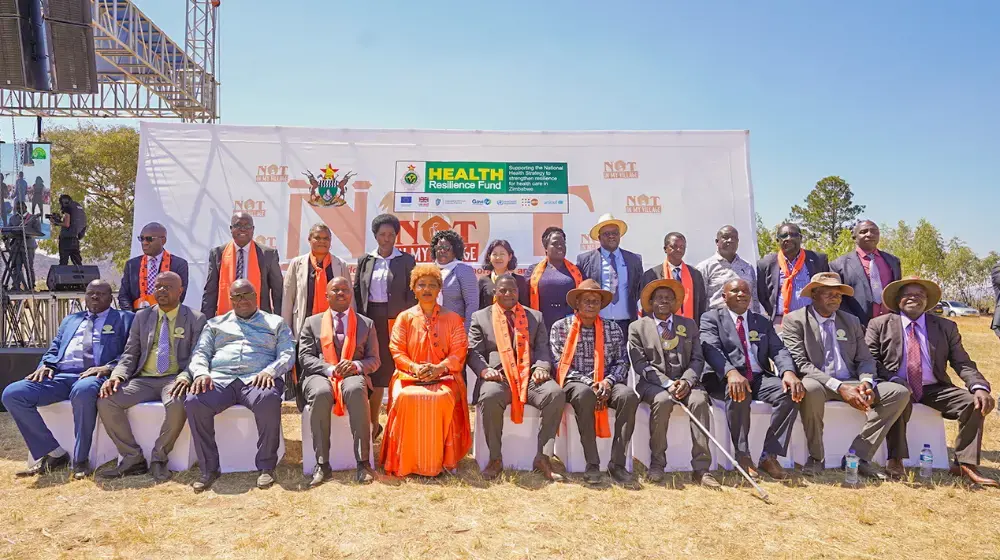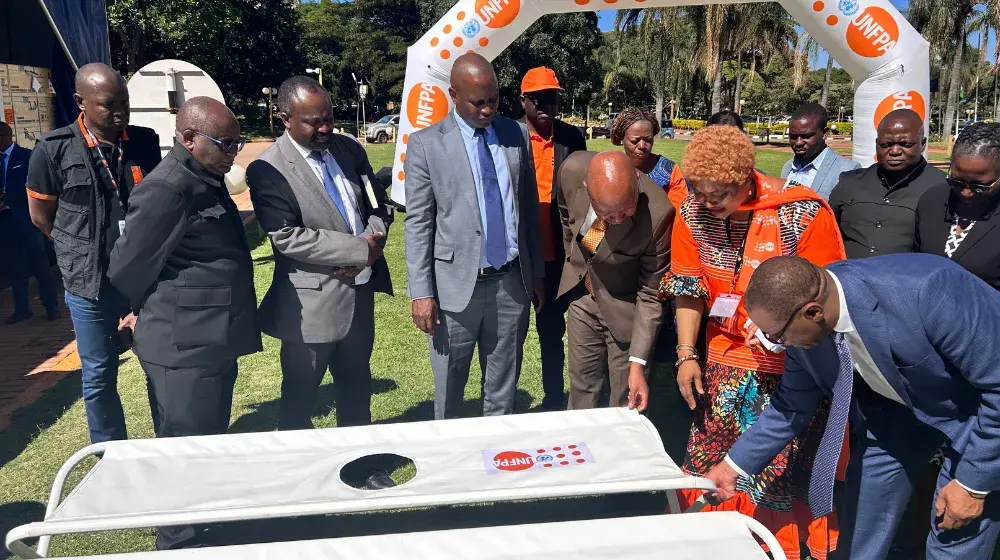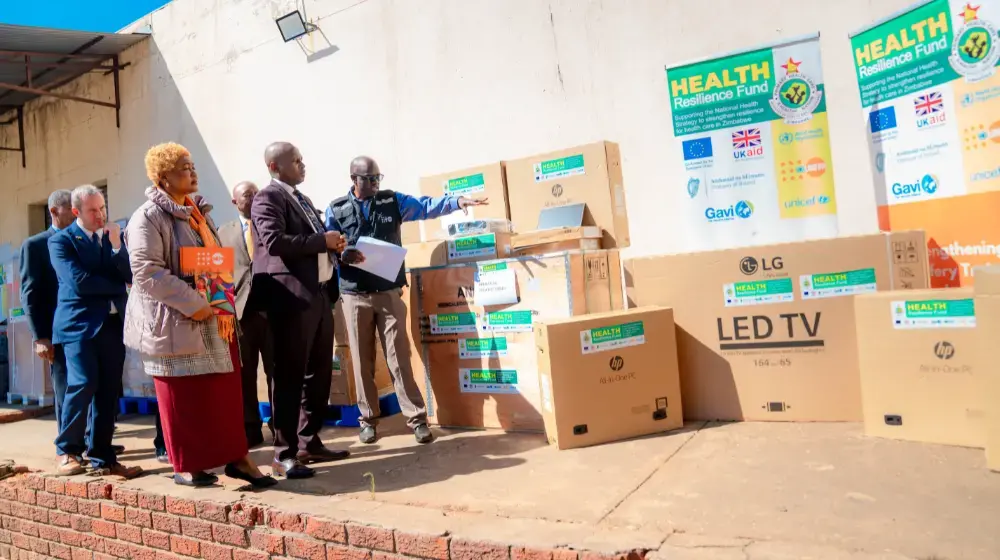Harare/New York – 8 May, 2019 — The global reproductive rights movement that began in the 1960s transformed the lives of hundreds of millions of women, empowering them to govern their own bodies and shape their own futures. But despite the gains made over the past 50 years, since the establishment of UNFPA, the United Nations sexual and reproductive health agency, the world still has a long way to go before rights and choices are claimed by all, according to the State of World Population 2019, released by UNFPA today.
On the journey towards rights and choices, women and girls have faced social and economic barriers every step of the way. A coalition of civil society, activists, and organizations such as UNFPA have been helping tear down those barriers. The efforts of the reproductive rights movements have dramatically reduced the number of unintended pregnancies and maternal deaths, and have cleared the way for healthier, more productive lives for untold millions, the new UNFPA report says.
The report traces advances in reproductive health on the anniversaries of two important milestones. It has been 50 years since UNFPA began operations in 1969 as the first United Nations agency to address population growth and reproductive health needs. It is also the 25th anniversary of the 1994 International Conference on Population and Development (ICPD), where 179 governments called for all people to have access to comprehensive reproductive health care, including voluntary family planning, and safe pregnancy and childbirth services. Much has been achieved since 1969, says the report as illustrated below:
- The average number of births per woman was 4.8 then, compared to 2.9 in 1994 and 2.5 today;
- fertility rate in the least developed countries dropped from 6.8 in 1969, to 5.6 in 1994 and 3.9 in 2015;
- The number of women who died from pregnancy-related causes has decreased from 369 per 100,000 live births in 1994, to 216 in 2019.
- 24 per cent of women used modern contraceptives in 1969, compared to 52 per cent in 1994 and 58 per cent in 2019.
However, reproductive rights are still out of reach for too many women, including the more than 200 million women who want to prevent a pregnancy but cannot access modern contraceptive information and services.
“Despite the increasing availability of contraceptives over the years, hundreds of millions of women today still have no access to them, and to the reproductive choices that come with them,” said UNFPA Executive Director Dr. Natalia Kanem. “Without access, they lack the power to make decisions about their own bodies, including whether or when to become pregnant.” “The lack of this power—which influences so many other facets of life, from education to income to safety—leaves women unable to shape their own futures,” added Dr. Kanem.
The report includes, for the first time, data on women’s ability to make decisions over three key areas: sexual intercourse with their partner, contraception use and health care. Across the 51 countries where this information is available, only 57 per cent of women who are married or in a relationship are able to make their own choices over all three of these areas.
Zimbabwe has also made some progress in ensuring reproductive health and rights. Notably in the area of access to contraceptives. Zimbabwe has made great strides in this area with those women of reproductive age using, or whose partner is currently using, at least one family planning method improving from 59% in 2010 to 67% in 2015, according to the Zimbabwe Demographic Health Survey, 2015. This is commendable because this rate is one of the highest in the region. In addition, although still high Zimbabwe’s maternal mortality rate reduced 960/100,000 live births in 2009 to 614/100,000 live births in 2015.
“As we also commemorate the 25 years of commitment to the ICPD agenda I would like to reaffirm our commitment as a government to ensuring women and young people live better and healthier productive lives free from violence, with dignity and with access to essential health services,” said Minister of Finance and Economic Development Professor Mthuli Ncube in a speech read on his behalf at the launch of the report.

“The Government of Zimbabwe is committed to addressing some of these issues through increased domestic funding to the health and social sectors. Government greatly values the support the health sector has been receiving from development partners and organisations working in the health and social sectors to improve quality of health care.”
While progress has been made in certain areas there remain many challenges in Zimbabwe in ensuring access to Sexual Reproductive Health and Rights (SRHR) that need to be addressed. This includes reducing maternal deaths – 9 women dying a day is too high a number and reducing teenage fertility (approximately 1 in 10 adolescent girls aged 15-19 give birth every year and many die or are injured in childbirth as they are bodies are not yet ready for child birth). In addition, Gender Based Violence remains a challenge in Zimbabwe affecting 1 in 3 women and girls – this prevents them from reaching their full potential in life. The prevalence of child marriage is yet another hindrance to the development of girls. Of concern as well are limited opportunities for young people’s development in the country and high HIV infections especially among young people
‘The pursuit of rights and choices for all is an ongoing one, with new challenges emerging all the time. Over the years, the nature and scope of these obstacles may have changed, but the United Nation’s commitment to overcoming them remains strong,” said UN Resident Coordinator Mr Bishow Parajuli at the launch of the report
For more information, please contact: Omar Gharzeddine: Tel.: +1 212 297 5028; gharzeddine@unfpa.org; or Richard Kollodge: Tel.: +1 212 297 4992; kollodge@unfpa.org or Bertha Shoko UNFPA Zimbabwe Communications Analyst: Tel.: +263 772782299 shoko@unfpa.org





